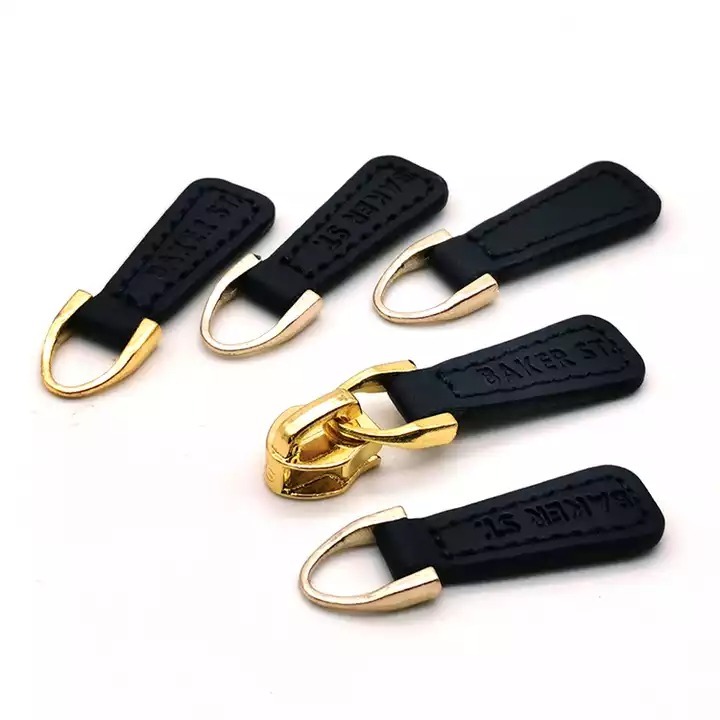Zippers are ubiquitous fastening devices that have revolutionized the world of fashion, manufacturing, and everyday convenience. They provide secure closures for garments, accessories, bags, and a wide range of other products. While zippers may seem like a simple invention, there are actually various types available, each with its unique features and applications. In this article, we will delve into the world of zippers, exploring their different types and highlighting the advantages of custom zippers in enhancing functionality and design.
1. Understanding the Diversity of Zippers:
Zippers come in a plethora of styles, each designed to suit specific needs and requirements. Some of the most common types of zippers include:
a. Coil Zippers: Also known as nylon zippers, these are made of a continuous coil of nylon or polyester, making them flexible and lightweight. They are commonly used in apparel, bags, and accessories.
b. Metal Zippers: Composed of metal teeth, these zippers offer durability and strength. They are often used in heavy-duty applications such as jeans, leather jackets, and military gear.
c. Plastic-Molded Zippers: Constructed with molded plastic teeth, these zippers are lightweight, corrosion-resistant, and available in a variety of colors. They are commonly found in sportswear, casual wear, and outdoor gear.
d. Invisible Zippers: Designed to be concealed within a seam, these zippers have a narrow tape and a fine coil. They are ideal for formalwear, dresses, and skirts, as they provide a seamless and discreet closure.
e. Water-Resistant Zippers: These zippers are treated with a special coating or have rubberized tape to prevent water penetration. They are commonly used in outdoor gear, raincoats, and sportswear.

2. The Advantages of Custom Zippers:
Custom zippers offer a range of benefits, allowing individuals and businesses to tailor zippers to their specific needs and enhance their products in various ways:
a. Branding and Personalization: Custom zippers provide an opportunity to showcase a brand's logo, colors, or unique design elements. This branding element can significantly enhance the product's aesthetics and create a distinct identity in the market.
b. Enhanced Functionality: Custom zippers can be designed with specific features to improve functionality. This includes options such as double sliders for two-way opening, locking sliders for added security, or extra-long sliders for easy gripping.
c. Tailored Lengths and Sizes: With custom zippers, the length and size can be customized to fit the intended application perfectly. This ensures a precise fit, preventing issues like overlapping or gaps in the closure.
d. Specialized Materials: Custom zippers allow for the selection of specialized materials based on the product's requirements. This includes options such as fire-resistant zippers for protective clothing, anti-microbial zippers for medical garments, or reflective zippers for safety gear.
e. Unique Design Elements: Custom zippers offer the opportunity to add unique design elements such as patterned tapes, decorative pulls, or customized sliders. These details can elevate the overall look of the product and make it stand out from generic options.
3. Considerations for Custom Zipper Selection:
a. Material Compatibility: When opting for custom zippers, it is crucial to consider the compatibility of the zipper material with the fabric or material of the product. The zipper should be able to withstand the intended use and any associated stress or environmental factors.
b. Functionality and Usage: Determine the specific requirements of the product concerning the zipper's functionality, such as ease of opening and closing, strength, or weather resistance. This will aid in selecting the most suitable type of custom zipper.
c. Professional Consultation: Seek guidance from experienced zipper manufacturers or suppliers who can provide insights into the available customization options and recommend the best solutions based on your specific needs.
4. The Future of Custom Zippers:
As customization becomes increasingly popular across industries, the future of custom zippers looks promising. Advancements in technology and manufacturing processes allow for more intricate designs, improved functionality, and increased production efficiency. Custom zippers will continue to play a vital role in product differentiation, branding, and meeting the evolving demands of consumers.
Conclusion:
Zippers are more than just functional closures; they are versatile design elements that can be customized to suit a wide range of applications. Understanding the diversity of zipper types and the advantages of custom zippers empowers individuals and businesses to create products that are not only visually appealing but also tailored to specific needs. By embracing the world of custom zippers, we unlock infinite possibilities for enhancing functionality, design, and overall customer satisfaction.


